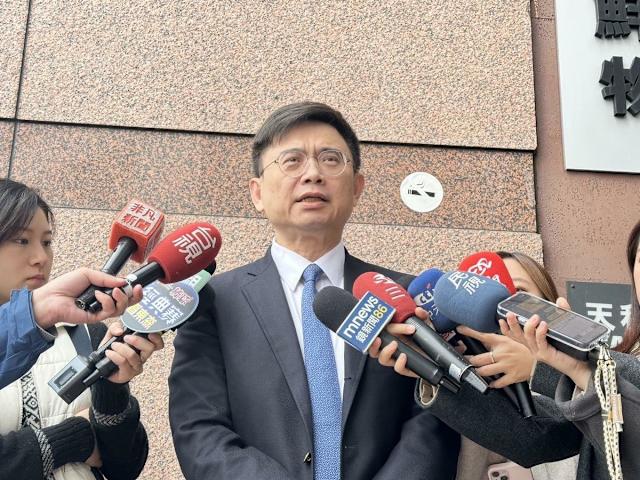By RK Shih/Staff
Photo shows Lai speaking to the media in September 2025. Via Yahoo News.
TAIPEI — When the new Legislative Yuan convened on Feb. 1, 2024, the Kuomintang (KMT) held 52 seats, the Democratic Progressive Party (DPP) 51, and the Taiwan People’s Party (TPP) eight—giving the KMT–TPP “blue–white” bloc a working majority despite the presidency remaining with the DPP.
That majority has now passed a second round of amendments to Taiwan’s fiscal allocation law. Supporters say the changes give local governments more stability and prevent abrupt year-to-year swings. The DPP argues the law locks in an already unequal distribution of resources.
Lai Jui-lung (賴瑞隆), one of four DPP candidates seeking his party’s nomination for next year’s Kaohsiung mayoral race, delivered the sharpest criticism. He accused the blue–white coalition of “another malicious revision,” saying the new rules further entrench funding patterns that historically favor northern and pan-blue regions.
Lai said the previous round of amendments had already cost Kaohsiung an estimated NT$20 billion. “Instead of correcting the imbalance, they doubled down on it,” he said, adding that the new version is “a revision southern Taiwan simply cannot accept,” according to Liberty Times.
The bill, passed on Nov. 14, requires that next year’s general-purpose subsidies cannot fall below this year’s level and that project-based subsidies must meet or exceed 10-year averages for counties of similar fiscal capacity. The DPP argues those rules, while neutral on paper, preserve an underlying allocation formula that was never corrected.
Lai also called on KMT Kaohsiung mayoral contender Ko Chih-en (柯志恩) to clarify whether she supports a system that he says disadvantages her own city.
DPP legislator Hsu Chih-chieh (許智傑) described the bill as a “second and even worse” rewrite, warning it could widen regional gaps and constrain the central government’s flexibility. He urged the Executive Yuan to introduce its own revision to “restore balance.”
KMT and TPP lawmakers say the amendments increase transparency, reduce political discretion, and bring Taiwan closer to international fiscal-sharing norms. Critics counter that without repairing the core distribution formula, the law merely makes unequal outcomes more predictable.
SIDEBAR|What the Fiscal Allocation Amendments Actually Change
1. Local Governments Receive a Larger Share of National Tax Revenue
The amended law raises the local share of certain taxes and guarantees no locality receives less than this year’s allocation.
Sources: Central News Agency; Ministry of Finance summaries.
2. General-Purpose Grants Frozen at This Year’s Baseline
General-purpose subsidies next year cannot fall below current levels—stabilizing budgets but also preserving existing disparities.
Source: Liberty Times, Nov. 16, 2025.
3. Project-Based Funding Must Match 10-Year Averages
Subsidies for public works, education, transport, and water treatment must meet or exceed the 10-year average for counties of the same fiscal tier.
Sources: United Daily News; Central News Agency.
4. The Underlying Distribution Formula Was Not Revised
The core formula determining how revenue is divided—long criticized by southern cities—remains unchanged.
Sources: Lai Jui-lung remarks; Liberty Times; CNA.
5. Why Kaohsiung Says It Loses
DPP lawmakers say leaving the formula untouched means:
• Kaohsiung continues to lose revenue relative to needs
• Earlier estimated losses of roughly NT$20 billion remain unaddressed
• Infrastructure demand in southern metros grows faster
Sources: Lai Jui-lung and Hsu Chih-chieh comments (Liberty Times, SETN, CNA).
6. Why Blue–White Supporters Call It Fair
KMT and TPP legislators argue the revisions offer:
• Predictable annual budgeting
• Less political discretion over subsidies
• More alignment with OECD-style revenue-sharing frameworks
Sources: KMT Policy Committee; TPP caucus statements; United Daily News.



